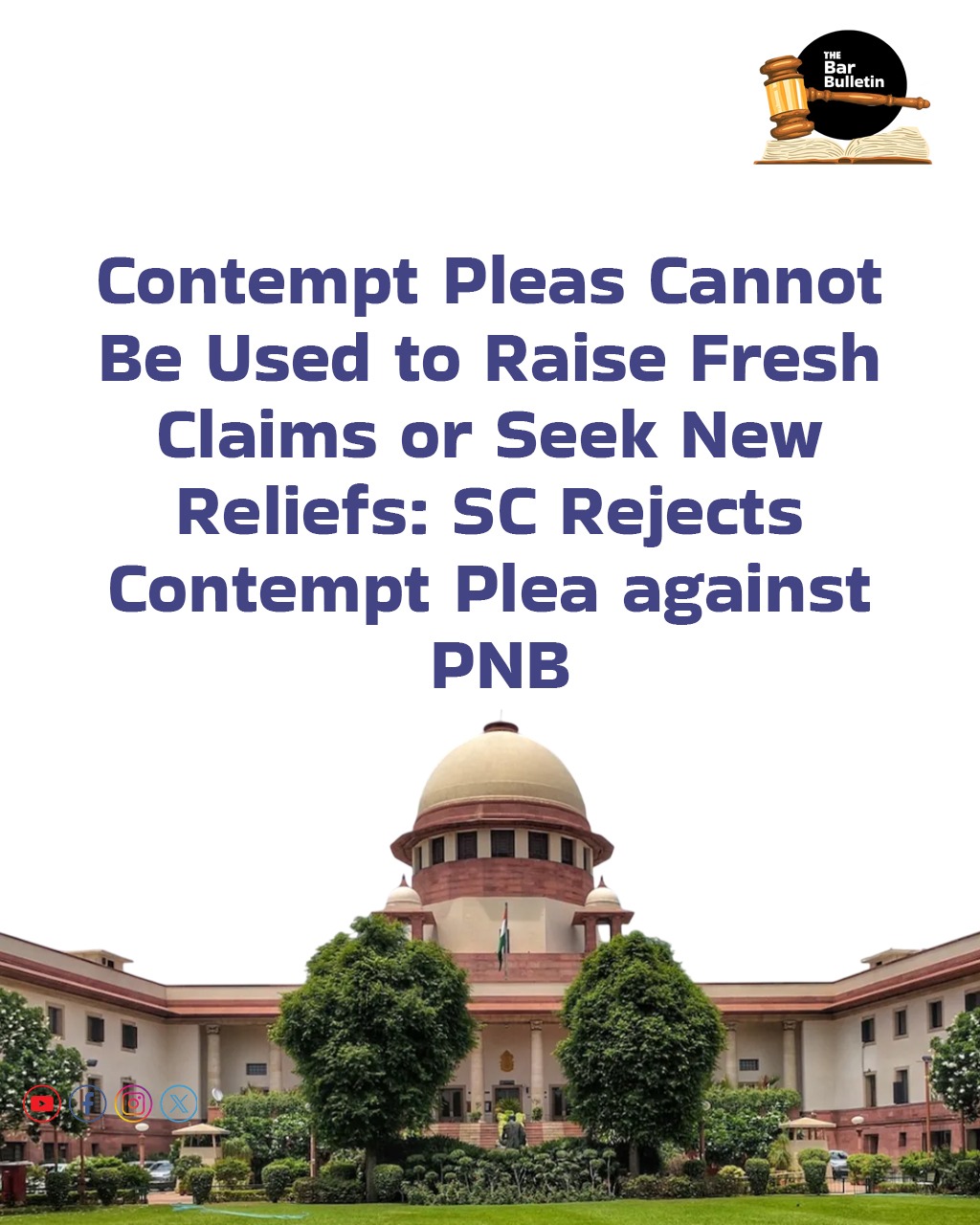The Supreme Court disposed of the contempt petition filed by a former manager of Nedungadi Bank Ltd., alleging non-compliance with its earlier order dated 17 January 2018. That order had directed the respondent bank, Punjab National (successor of Nedungadi Bank), to release the outstanding dues payable to him within three months, as ordered by the High Court.
The Petitioner was dismissed from service on the grounds of certain irregularities in the sanctioning of loans, overdrafts, cheques discounting, and delay in reporting. This dismissal was challenged before the Deputy Commissioner of Labour under the Tamil Nadu Shops and Establishments Act, 1947, who set aside the order and directed reinstatement. The Bank challenged this decision before the Madras High Court on the plea that the Labour Commissioner should not have proceeded as the matter was beyond the period of limitation, leading to a remand for deciding the question of delay and then the merits. On remand, the Deputy Commissioner condoned the delay based on the medical certificate produced and held that the alleged misconduct was not justified and that no mala fide or dishonesty was involved. This was again challenged before the Madras High Court, which upheld the decision of the Deputy Commissioner of Labour but limited the back wages to 60%.
The Petitioner contended that the explicit mandate of this Court, directing payment within three months from 17.01.2018, was failed to be complied with by the respondent-Bank, and submitted that that the delay reflects wilful and deliberate disobedience. It was further claimed that the petitioner was entitled to pensionary benefits, which were not paid, thereby further aggravating the contempt. It was noted that the arrears of salary, gratuity, and provident fund dues had already been disbursed between March and June 2019. However, the Respondents refused to accept the claims of the petitioner, stating that the entire amount directed by the Court had already been paid and that the delay was due to administrative difficulties arising from the amalgamation of Nedungadi Bank Ltd. with Punjab National Bank and because of the non-availability of legacy records. It was further contended that no direction regarding the grant of pension was issued in the judgment dated 17.01.2018, and therefore this could not form the basis of the present contempt.
The Court while relying on Ashok Paper Kamgar Union v. Dharam Godha and Others[1] and Rama Narang v. Ramesh Narang and Another [2]held that the contempt jurisdiction was intended to uphold the majesty of law and not to settle personal grievances and observed that in a case of civil contempt, the breach must be deliberate and intentional. The Court held that although the payment was not effected by the Bank within the time permitted by the Court, but the material placed on record do not demonstrate that the delay in compliance was borne out of any wilful or contumacious intent, intent, as administrative hurdles post-merger and retrieval of records dating back over three decades were referred as explanation. The Court emphasised on the element of mens rea, which was considered as essential for sustaining a charge of civil contempt and cannot be inferred merely from the factum of delay.
The Bench of Chief Justice of India BR Gavai and Justice AG Masih observed that Contempt jurisdiction was not a forum for asserting new claims or seeking substantive reliefs which were neither raised nor granted earlier. Reliance was placed on Jhareswar Prasad Paul and Another v. Tarak Nath Ganguly and Others,[3] wherein it was held that contempt proceedings could not be used to circumvent proper adjudication mechanisms. Conclusively, the prayer for initiation of contempt proceedings was disposed of, and the claim for pensionary benefits was rejected. The respondent-Bank was directed to pay Rs. 3,00,000/- to Smt. Vimala Prakash, widow of the deceased Petitioner, or in her absence to the other legal representatives on record, within eight weeks, because of the long delay in disbursal of dues, failing which interest at 8% per annum would be payable until disbursement.
Cases relied on:
Ashok Paper Kamgar Union v. Dharam Godha and Others
Rama Narang v. Ramesh Narang and Another
Jhareswar Prasad Paul and Another v. Tarak Nath Ganguly and Others
Appearances:
[1] (2003) 11 SCC 1
[2] (2006) 11 SCC 114
[3] (2002) 5 SCC 352

